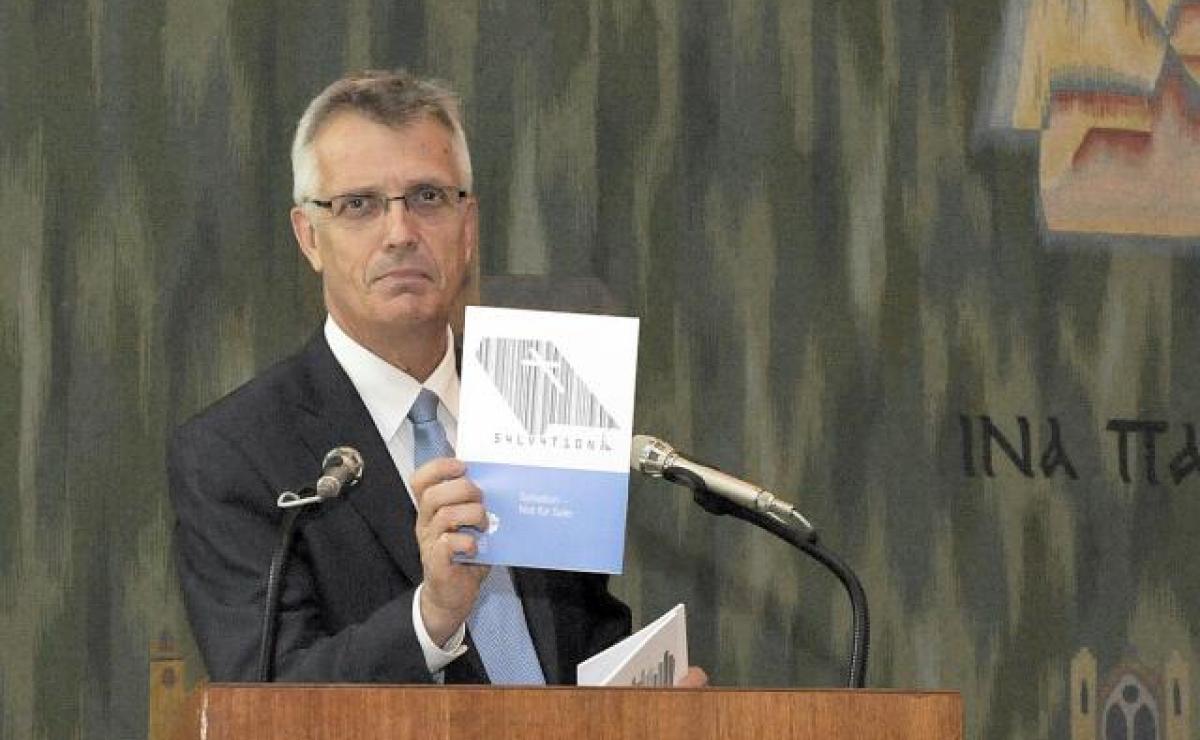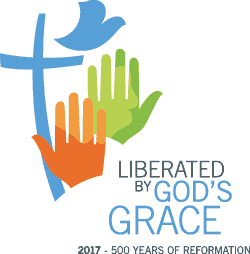New Reformation booklets explore theological and contextual questions

The Lutheran World Federation's Anne Burghardt offers insight into the four booklets produced for the 2017 Reformation anniversary theme, Liberated by God’s Grace, and its three sub-themes on salvation, human beings and creation.
The 500th anniversary of the Reformation in 2017 provides an excellent opportunity to reflect on the relevance of questions that triggered the movement to reform the church in the 16th century and on new challenges over the course of time.
The Lutheran World Federation (LWF) commemorates the 500th anniversary of the Reformation with the theme, Liberated by God’s Grace, a subject closely linked to the doctrine of justification by faith. The central insight that in Christ the grace of God is given to us as a free and unconditional gift evokes gratitude and expresses itself in the loving and caring engagement with human beings and the whole of creation. Nonetheless, several practices and theological concepts stand in the way of the gospel’s liberating message. The three sub-themes: Salvation – Not for Sale, Human Beings – Not for Sale and Creation – Not for Sale, help to address these challenges.
The LWF seeks to trigger discussions around these important themes with its recently published set of Reformation booklets. Popular essays written by authors from the worldwide Lutheran communion draw on LWF’s program work and address crucial issues and challenges that people around the world face today. The three questions at the end of each essay invite the reader to undertake further contextual reflection. While being far from exhaustive, the questions offer some impulses for further reflection.
Under the main theme, Liberated by God’s Grace, the topics presented range from the concept of grace or mercy, renewed understanding of the church’s role in society, to contextual examples of the gospel’s liberating message for gender equality.
Where do human beings expect their salvation to come from? Which institutions do they need in order to justify themselves? These are the overarching questions in the booklet, Salvation – Not for Sale. The authors explore topics such as prosperity gospel and rituals related to salvation and go on to question practices and theological concepts that could be described as attempts to commodify salvation.
Human Beings – Not for Sale provides perspectives on Lutheran anthropology, human trafficking, migration and sustainable ways of living together, among other topics. The essays on Creation – Not for Sale emphasize the need to pay attention to God’s entire creation in light of today’s massive exploitation of natural resources. The subjects vary from genetic engineering, climate change and climate justice, to land grabbing.
The booklets are intended for use by pastors and theologians, in seminaries and by peer groups in the church and in conversations with partner churches. It is our hope that reading and discussing the wide range of topics would inspire commitment to promote and support more just and peaceful relations. Such insights will be of great value as the LWF prepares for the Twelfth Assembly in May 2017.
The booklets can be ordered from [email protected].
Rev. Anne Burghardt is study secretary for Ecumenical Relations at the LWF Department for Theology and Public Witness, and the Twelfth Assembly content coordinator.

